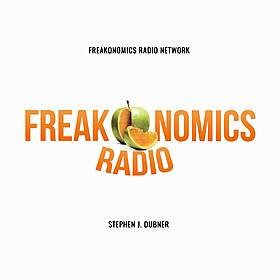
634. “Fault-Finder Is a Minimum-Wage Job”
30 May - 1 hour 2 minsAustan Goolsbee, president of the Federal Reserve Bank of Chicago, is less reserved than the average banker. He explains why vibes are overrated, why the Fed’s independence is non-negotiable, and why tariffs could bring the economy back to the Covid era.
SOURCES:Austan Goolsbee, president and chief executive officer of the Federal Reserve Bank of Chicago.
RESOURCES:"Internet Rising, Prices Falling: Measuring Inflation in a World of E-Commerce," by Austan Goolsbee and Peter Klenow (American Economic Association Papers and Proceedings, 2018).Microeconomics, by Austan Goolsbee, Steven Levitt, and Chad Syverson (2012)."Does the Internet Make Markets More Competitive? Evidence from the Life...

633. The Most Powerful People You’ve Never Heard Of
Just beneath the surface of the global economy, there is a hidden layer of dealmakers for whom war, chaos, and sanctions can be a great business opportunity. Javier Blas and Jack Farchy, the authors of "The World for Sale", help us shine a light on the shadowy realm of commodity traders.
1 hour 5 mins
23 May Finished

How to Succeed at Failing, Part 4: Extreme Resiliency (Update)
Everyone makes mistakes. How do we learn from them? Lessons from the classroom, the Air Force, and the world’s deadliest infectious disease.
52 mins
21 May Finished

How to Succeed at Failing, Part 3: Grit vs. Quit (Update)
Giving up can be painful. That's why we need to talk about it. Today: stories about glitchy apps, leaky paint cans, broken sculptures — and a quest for the perfect bowl of ramen.
1 hour 3 mins
16 May Finished

How to Succeed at Failing, Part 2: Life and Death (Update)
In medicine, failure can be catastrophic. It can also produce discoveries that save millions of lives. Tales from the front line, the lab, and the I.T. department.
53 mins
14 May Finished

How to Succeed at Failing, Part 1: The Chain of Events (Update)
We tend to think of tragedies as a single terrible moment, rather than the result of multiple bad decisions. Can this pattern be reversed? We try — with stories about wildfires, school shootings, and love.
55 mins
9 May Finished





















